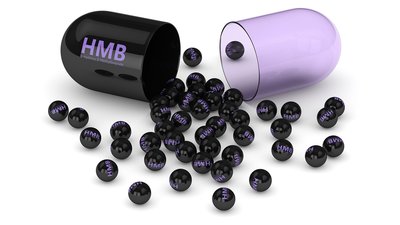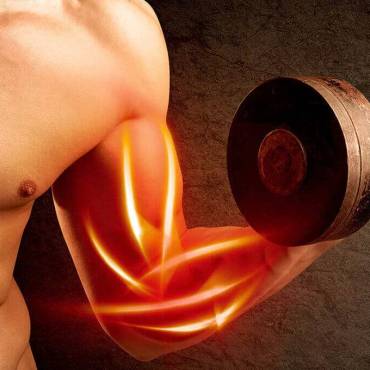Supplemental HMB
β-Hydroxy β-methylbutyric Acid (HMB): Micro-Entry
All substance, no fluff.
By Dr. Allan Bacon
Overview
Supplemental HMB has been claimed to improve body composition, muscle mass, recovery, strength, and prevent catabolism. HMB, itself, is a metabolite of the commonly known amino acid L-Leucine.
Unfortunately for proponents of the supplement, HMB appears to be ineffective for anyone that eats even a modest amount of protein daily.
There are a small handful of studies that suggest it promotes effects stronger than anabolic steroids, but these studies are widely regarded as either fraud or outliers by the scientific community as they have been unable to be replicated.
Currently, there is little rationale for the use of HMB as a sports supplement, in either free acid or calcium bound form, for any of its purported benefits for otherwise healthy, active people. The data showing the most promise tends to be in dramatic catabolic conditions such as cancer cachexia, acquired immunodeficiency syndrome, and in bedridden or sedentary older adults for preserving strength and preventing sarcopenia.
Moral of the story? Save your money on HMB and visit the Maui Athletics shop instead.
Happy lifting!
-Allan
Research
Our findings do not support the use of HMB aiming at improvement of body composition or strength with RET.
doi.org/10.3390/nu12051523
Supplementation with leucine metabolites is not a supplementation strategy that improves bioelectrical phase angle, cellular health, and strength after an 8-week resistance training program. When consuming a high protein diet, none of the α-hydroxyisocaproic acid, β-hydroxy-β-methylbutyrate free acid, and calcium β-hydroxy-β-methylbutyrate metabolites resulted in an ergogenic effect in resistance trained men.
doi.org/10.1139/apnm-2020-0915
β-Hydroxy-β-methylbutyrate added to whey did not result in greater increases in any measure of muscle mass, strength, or hormonal concentration compared to leucine added to whey. Our results show that HMB is no more effective in stimulating RT-induced hypertrophy and strength gains than leucine.
DOI: 10.1249/MSS.0000000000001752
Supplementation with HMB (FA and Ca) or α-HICA failed to enhance body composition to a greater extent than placebo. We do not recommend these leucine metabolites for improving body composition changes with RET in young adult resistance trained men.
doi.org/10.1080/17461391.2018.1552723
The combination of HMB and creatine monohydrate supplementation does not provide a greater ergogenic benefit compared to creatine monohydrate supplementation alone. Body composition, strength, and sprinting ability did not change across the season with creatine monohydrate supplementation.
doi.org/10.1186/s12970-020-00359-4
HMB supplementation had no effect on body composition over a 6-week period in MMA fighters.
doi.org/10.1186/s12970-020-00352-x
Supplemental HMB during fasting periods of TRF did not definitively improve outcomes.
doi.org/10.1093/ajcn/nqz126
This meta-analysis found no effect of HMB supplementation on strength and body composition in trained and competitive athletes.
DOI: 10.1016/j.jsams.2017.11.003
The authors concluded that neither HMB-Ca nor HMB-FA improved hypertrophy or reduced muscle damage in resistance-trained men undergoing resistance training ingesting optimal amounts of protein. HMB-FA but not HMB-Ca resulted in a statistically significant yet minor improvement on leg press one-repetition maximum.
DOI: 10.1123/ijsnem.2018-0337
Data from 10 randomized controlled trials (RCTs) investigating the effect of HMB supplementation and physical function in adults aged 50 years or older were analyzed, involving 384 participants. Results showed that HMB supplementation in addition to physical exercise has no or fairly low impact in improving body composition, muscle strength, or physical performance in adults aged 50 to 80 years, compared to exercise alone.
doi.org/10.3390/nu11092082
No leucine metabolite resulted in any ergogenic effects on any outcome variable. Supplementation with leucine metabolites—α-HICA, HMB-FA, or HMB-Ca—is not a supplementation strategy that improves muscle growth and strength development in young adult men.
doi: 10.1249/MSS.0000000000001754








